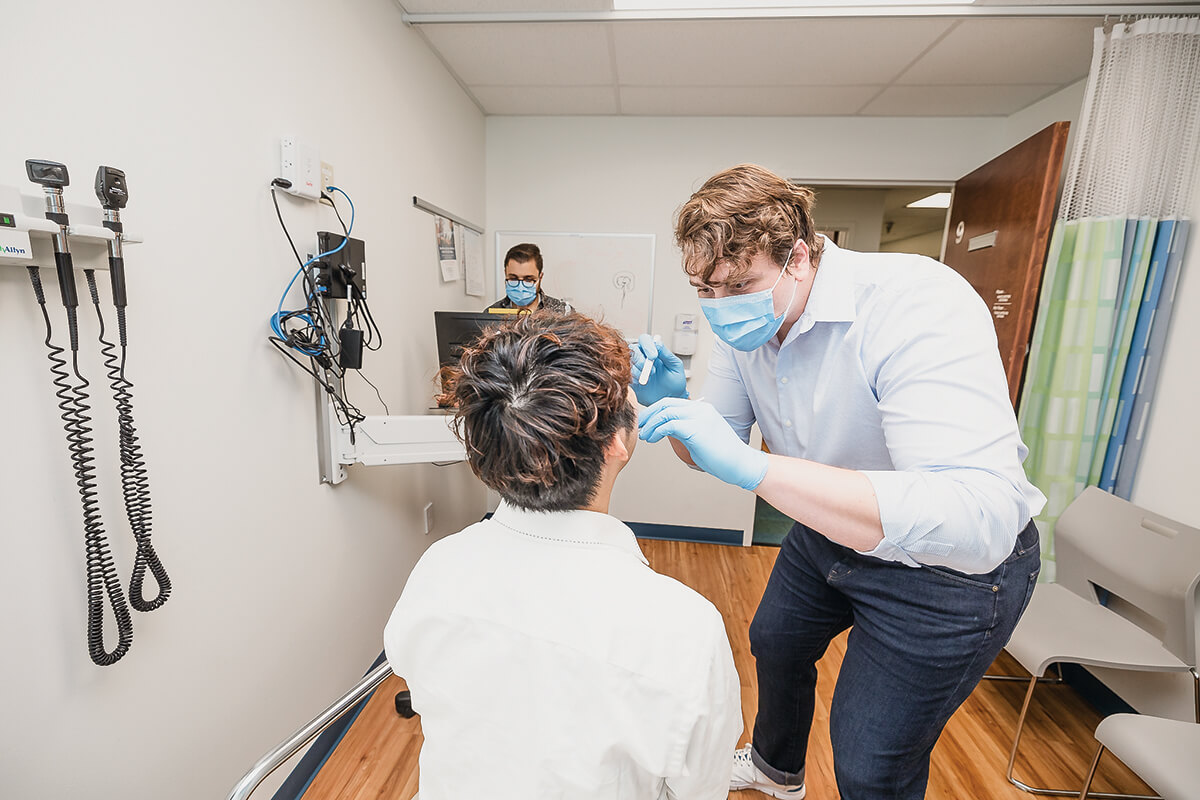lens
Community Care
Student-Run Health Clinic serves patients’ needs
 PHOTO: Matt ShifflerDental student Elliott Detrich volunteering at the Student-Run Health Clinic.
PHOTO: Matt ShifflerDental student Elliott Detrich volunteering at the Student-Run Health Clinic.On Elliott Detrich’s second day volunteering at a healthcare clinic run by Case Western Reserve students, a patient came in for an infection screening—and afterward, Detrich addressed an urgent dental issue the patient didn’t know he had.
“Right off the bat, we got him into [a treatment program],” said Detrich, now a fourth-year student at the School of Dental Medicine and dental director at the Student-Run Health Clinic.
Without the free clinic, the man told Detrich and a social-work student also volunteering there, he wouldn’t have known about the gum disease and tooth decay students flagged, nor could he have afforded the needed care.
“He was brimming with excitement,” Detrich said. “He said he didn’t know he was going to get [the dental screening] that day.”
Two Saturdays a month CWRU students studying medicine, nursing, dentistry or social work volunteer at the clinic under the supervision of a physician and a dentist who also volunteer there.
They focus on underserved people across greater Cleveland, providing treatment for concerns including colds, flu and urinary tract infections as well as wellness exams, referrals to physicians and mental-health counselors, pregnancy tests and screenings for issues including sexually transmitted infections.
This academic year, the clinic is also expanding dental services at its facilities located at a Neighborhood Family Practice office on Cleveland’s West Side. That includes oral cleanings and imaging.
“The practice is passing some of that work to us,” said Vassili Bletsos, a third-year dental student and the on-site dental clinical coordinator.
The clinic, which CWRU medical students founded in 2011, has slots for 50 dental students each academic year. Waiting lists are common. The experience has taught Detrich and other students to approach patients holistically and in close interprofessional collaboration with others.
“We have to be mindful of barriers, including their mental health, lack of transportation and diet,” Detrich said. “We need to be very receptive and understanding to every aspect of the patient.”
The time at the clinic has enriched the students’ educations and fulfilled them on a deeper level. “It’s been very rewarding to see how we’re opening the doors for patients,” Bletsos said, “providing them with an essential service.”
The experience has expanded Detrich’s career ambitions. He now hopes to spend a third of a six-day working week in under-resourced communities.
“I want to do pediatric dentistry,” he said. “I also want to volunteer to spread dental education and services to the people in the community that will surround me, regardless of their ability to pay.”





